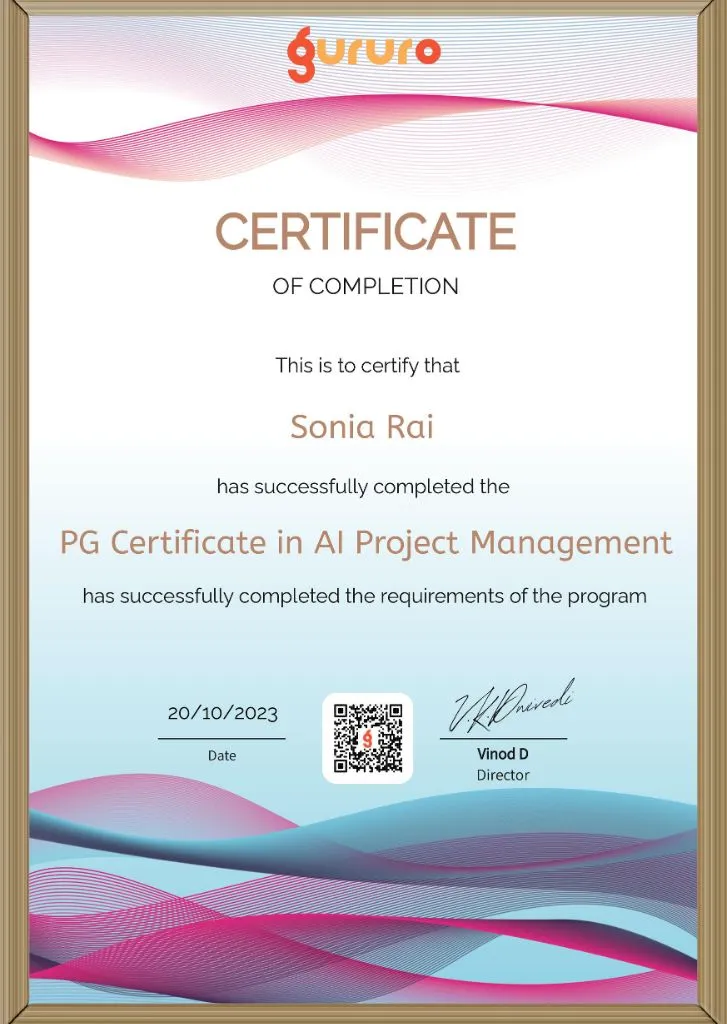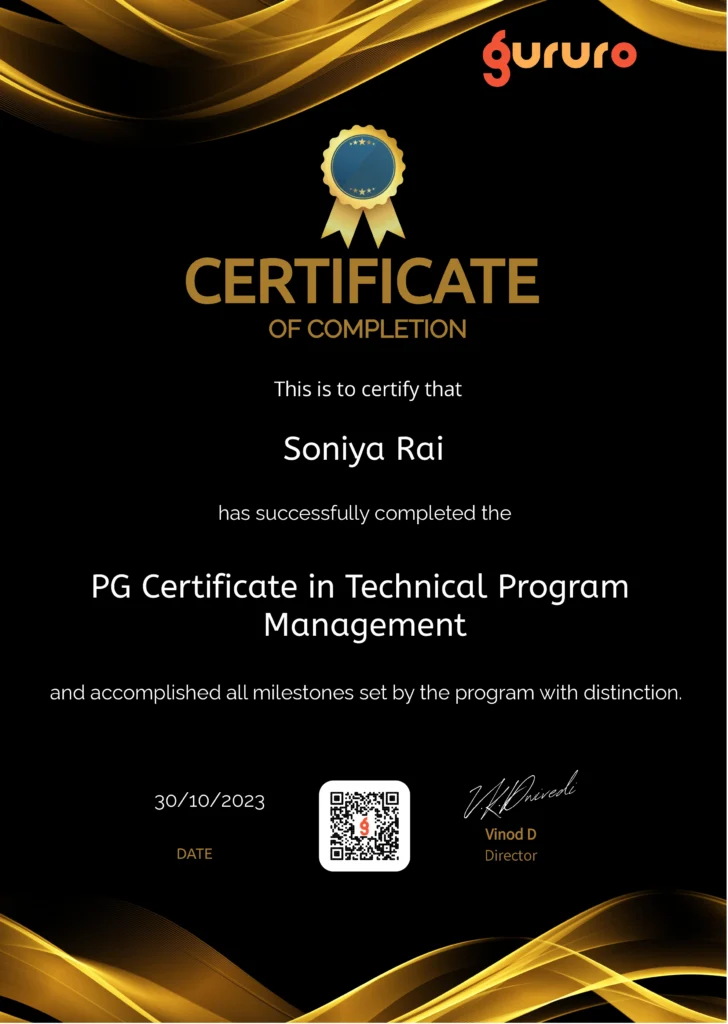PG Certificate in Technical Program Management
Empower your career with a cutting-edge program management course tailored for the tech-savvy professional.
- Only Comprehensive Course on Technical Program Management
- Propel your management career to new heights
- Stay recession-proof and unaffected by slowdowns or layoffs
25,500+
Professionals trained
100+
Countries and counting
Accreditations
CPDHour.org & Niiti.org
Duration
24 Weeks
8-10 Hours per week
Learning Format
Live Classes + Self Paced +
Mentor Led Learning
Fees
INR 75,000
INR 49,999
Program Overview
Welcome to an exciting pathway towards becoming a leader in the tech industry with our PG Certificate in Technical Program Management. This program is more than just an educational course; it’s your gateway to joining the elite in the tech world. You’ll start by building a strong foundation with our PG Certificate in AI Project Management, transitioning from the basics of project management to the fascinating realm of AI. Even if AI seems like a distant dream right now, we’re here to make that dream a reality.
As you delve deeper, the course guides you through the intricate aspects of program management. From understanding the essentials to mastering advanced strategies, you’ll learn to manage expansive tech projects with ease and finesse. And the best part? Our program is designed to be inclusive and accessible, making technical jargon and complex concepts second nature to you, whether you’re just starting out or are a seasoned professional.
The PG Certificate in Technical Program Management offers a unique and comprehensive path for those aspiring to become leaders in the rapidly evolving tech industry. This dual certificate course integrates the curriculum of the PG Certificate in AI Project Management and the PG Certificate in Program Management, providing a holistic educational experience.
The tech industry is eagerly searching for skilled Technical Program Managers. With over 15,000 openings in various tech organizations and more than 1000 specific positions in leading tech giants like MAANG in the USA alone, the demand for professionals like you is skyrocketing. Stepping into this program means not just gaining knowledge but also unlocking the doors to some of the most lucrative job roles in tech. The salary packages for Technical Program Managers notably surpass those of regular project management roles, making this an extremely rewarding career choice.
Key Features
Dual Life time verifiable Certificate
✅ Acquire lifetime digital certificates & unique skill badges
✅ Combine AI strategies with PM techniques
✅ Excel in AI PM details & overall TPM
Program Management Toolkit Mastery
✅ Explore TPM with practical applications
✅ Boost problem-solving & leadership skills
✅ Enhance projects with advanced tools & practices
Weekly Live Class
✅ Dive into tech-centric themes through expert interactive workshops.
✅ Discuss the latest AI tools and their program management implications.
✅ Gain industry insights and top strategies from leading TPM authorities.
AI In Action
✅ AI Basics: Understanding Foundations & Prompt Engineering
✅ Harnessing AI: Integration in MS Office Suite
✅ Evolving Project Management with Advanced AI Tools
300+ hours of video explanation
✅ Immerse in detailed modules on program management.
✅ Absorb content optimized for TPM, crafted by industry leaders.
✅ Gain insights into the latest technologies & trends shaping the field.
Real-World Case Study
✅ Analyze complex case studies reflective of real world challenge
✅ Craft approaches for tackling targeted tech challenges in projects.
✅ Enhance expertise by applying practical tech-based challenges.
Capstone Project Trialogy
✅ Embark on a three-tiered capstone journey. ✅ Start with a project foundation, evolve with agile strategies ✅ Finalize with a standout AI Project for your portfolio.
Interview Preparation
✅ Engage in a comprehensive Program Manager assessment
✅ Navigate through general and specialized
PM & DM questions
✅ Master case study interview questions for real-world insights
Career Support
✅ Elevate your CV and LinkedIn for a top-tier leadership look ✅ Benefit from 1-1 mentoring sessions to overcome challenges ✅ Mock interviews with experts for invaluable tips & feedback
Aspiring TPMs Building a Strong Knowledge Foundation
Kickstart your journey into the realm of technical program management. Newcomers and career-switchers will acquire a solid foundation in the essential skills and knowledge required to establish themselves in the evolving field of technical program management.
Experienced Program Managers Diving into Technical Specialization
Expand your management horizon by delving into the intricacies of technical program management. If you're an established professional looking to navigate the intersection of technology and large-scale program strategy, this program is your bridge to a tech-centric managerial role.
Project Managers & Engineers Transitioning into TPM
Elevate your project oversight to a technical program level. For engineers and project managers aiming to manage complex, technical initiatives, our program offers the knowledge and tools to excel in technical program management.
IT Professionals Amplifying Their Management Skills
Stand out by mastering the complexity of technical programs. IT professionals eager to advance their careers with superior technical program management skills will find this program tailored to enhance their marketability and expertise.
Tech Leads & Architects Scaling to Managerial Heights
Transition from technical expertise to program leadership. Tech leads and system architects looking to lead broader initiatives can find in this program the managerial acumen needed to match their technical prowess.
Product Managers Integrating Technical Strategy
Merge product strategy with technical depth. Product Managers seeking to infuse their role with a robust technical strategy component will find this program a catalyst to leading technical teams and driving product success with informed technical decisions.
Who is this Program For
Dual Certificate Program
PG Certificate in Technical Program Management
- Master tech project execution
- Drive business impact.
- Acquire unique tech leadership skills
- Let your work do the talking
- Hack your way into opportunities
Start Your journey now
- Dual Lifetime Certificates: 📜 Acquire lifetime certificates & unique skill badges, combining AI strategies with PM techniques.
- Program Management Mastery: 🛠️ Boost problem-solving & leadership skills with advanced tools and practical applications.
- Weekly Live Classes: 🎓 Participate in tech-centric workshops, discussing AI tools and TPM strategies.
- AI in Action: 🤖 Master AI foundations, MS Office integration, and advanced PM tools.
- Extensive Learning: 📚 Access 300+ hours of TPM-focused video content.
- Real-World Case Studies: 🌍 Tackle complex, tech-based challenges in projects.
- Capstone Project Trilogy: 🏆 Complete a three-tiered AI-focused project.
- Interview Prep & Career Support: 💼 Excel in PM assessments with mock interviews and mentoring.
7 day Free Trial
1st Month USD 266
2nd Month USD 266
3rd Month USD 266
What People Say About Us
Client Testimonials







Program Course Syllabus
PG Certificate In AI Project Management
- Project Management – Foundational level
- Project Management – Advanced Level
- Tools
- Management
- AI for Project Managers
- Capstone Project on AI Project Management
- Career Progression
Module Contents:
- The Power of AI: Examining the transformative influence of Artificial Intelligence in various sectors.
- Why is AI Taking or Replacing Jobs: Discussing how AI’s efficiency and capabilities contribute to job automation and displacement.
- Case Study of Dukaan: Analyzing Dukaan’s use of AI to illustrate its real-world business impact.
- Impact of AI on All Jobs: Exploring the broad implications of AI on employment across different industries.
- The Evolution of Project Management: Tracing the changes in project management practices due to technological advancements.
- Why AI in Project Management: Understanding the reasons behind integrating AI into project management.
- Aspects of Project Management that Will Be Disrupted: Identifying key areas in project management likely to be transformed by AI.
- The New Role of Project Managers: Redefining the responsibilities and skills needed for project managers in the AI era.
- AI Project Management Tools: Highlighting tools that incorporate AI to enhance project management.
- Will AI Replace Project Managers: Evaluating the potential of AI to fully replace human roles in project management.
Learning Outcomes:
- Understanding AI’s Capabilities: Articulate the fundamental capabilities and significance of Artificial Intelligence in today’s world.
- AI’s Impact on the Job Market: Evaluate the shifts and transformations in the job market caused by AI, understanding both opportunities and displacements.
- Learning from AI Case Studies: Apply knowledge from real-world case studies, like Dukaan, to appreciate AI’s tangible influence on businesses.
- History of Project Management Trajectory: Trace the historical and current trajectory of Project Management, identifying the pivotal moments of change.
- AI’s Disruption in Project Management: Pinpoint the specific facets of Project Management that AI is poised to disrupt or enhance.
- Adapting to AI in Project Management: Envision and adapt to the evolving roles and responsibilities of Project Managers in an AI-integrated environment.
- Utilizing AI for Project Management: Utilize and optimize AI-driven tools and platforms for more efficient and effective Project Management.
- Strategic Thinking for the Future: Engage in strategic thinking and planning for the future, considering both the potential of AI in Project Management and the enduring value of human skills and expertise.
Module Contents:
- Practical Project Management Course: Practical course which covers the breadth and depth of project management.
- Best Practices from Latest Guides: Best practices covered from the latest Agile Guide, PMBOK 6th and PMBOK 7th edition.
- Extensive Practice Materials: 2000+ Practice questions + Simulation exams.
Learning Outcomes:
- PMP Exam Preparedness: Be thoroughly prepared and confident to take and succeed in the PMP certification exam.
- Understanding PMP Knowledge Areas: Possess a deep and holistic understanding of the PMP knowledge areas and process groups.
- Applying Project Management Best Practices: Exhibit proficiency in applying project management best practices in real-world scenarios.
- Strategic Approach to Exam Questions: Demonstrate a strategic approach to addressing complex, scenario-based questions typically found on the exam.
- Commitment to PMI’s Ethical Guidelines: Understand and commit to PMI’s ethical guidelines, ensuring professionalism in their project management endeavours.
- Effective Study and Test-Taking Techniques: Be equipped with effective study techniques, test-taking strategies, and time management skills tailored for the PMP exam.
- Importance of Continuous Learning: Recognize the importance of continuous learning and professional development in the evolving field of project management.
Module Contents:
- Practical Course for PSM 1 Certification: This practical course will prepare you to ace the PSM 1 Certification and help with new career opportunities.
- Extensive Practice Materials: 500+ Practice questions + Simulation exams.
Learning Outcomes:
- Understanding Scrum Framework: Gain a deep understanding of the Scrum framework, including roles, events, and artefacts.
- Facilitating Scrum Ceremonies: Be fully equipped to facilitate Scrum ceremonies, ensuring their effectiveness and adherence to Scrum values.
- Supporting Agile Teams: Exhibit the ability to support and coach Agile teams towards delivering high-value products.
- Removing Impediments: Demonstrate proficiency in removing impediments that hinder the team’s progress, ensuring smooth sprint execution.
- Applying Servant Leadership: Understand and apply servant leadership principles, emphasizing collaboration, facilitation, and enablement.
- Protecting the Team: Possess the skills to protect the team from external interruptions and distractions, ensuring a focus on sprint goals.
- Grasp of Agile Principles: Exhibit a strong grasp of Agile principles and the importance of a flexible, adaptive approach to product development.
- Preparation for PSM Certification: Be well-prepared and confident to take and succeed in the Professional Scrum Master (PSM) certification exam.
Module Contents:
- Easy-to-Use System for Process Management: Learn an easy to use system that can help avoid feeling overwhelmed by those endless processes.
Understanding Lean Principles: Understand lean principles and discover how to use a kanban board to help your team prioritize more effectively.
Implementing Enterprise Lean and Kanban: Learn about starting enterprise lean, setting up a board, optimizing your flow, and much more.
Learning Outcomes:
- Foundational Kanban Principles: Understand the foundational principles and core practices of the Kanban method.
Proficiency with Kanban Boards: Exhibit proficiency in visualizing work processes using Kanban boards, recognizing bottlenecks, and optimizing workflow. - Significance of WIP Limits: Grasp the significance of Work-In-Progress (WIP) limits and their role in improving process efficiency and reducing lead times.
- Applying Pull-Based Systems: Demonstrate the ability to apply pull-based systems, ensuring that work items are addressed in the order of their priority and relevance.
- Utilizing Key Kanban Metrics: Understand and utilize key Kanban metrics, such as lead time, cycle time, and throughput, to drive continuous improvement.
- Fostering Collaboration and Feedback: Foster a culture of collaboration and feedback, ensuring regular and constructive reviews of work processes and outcomes.
- Adapting Kanban Methodology: Recognize the evolutionary and adaptive nature of Kanban, adapting the methodology as per team needs and organizational goals.
- Embracing Incremental Change in Kanban: Embrace the Kanban philosophy of incremental, evolutionary change, focusing on minimizing disruptions while maximizing productivity.
Upon course completion, participants will be equipped with the knowledge and tools to implement Kanban effectively, enhancing the responsiveness, efficiency, and quality of their work processes.
Module Contents:
- Scrumban Awareness: This course will provide you with sufficient awareness of Scrumban to help you determine whether it will be the right delivery approach for your next project.
- Managing Product Backlog: Understand how to manage the Product Backlog effectively.
- Executing Scrumban: Learn how to execute Scrumban in your projects.
Learning Outcomes:
- Fundamentals of Scrum and Kanban: Understand the fundamentals of both Scrum and Kanban and the rationale behind their fusion in Scrumban.
- Benefits of Blending Scrum and Kanban: Recognize the benefits of blending the structured sprint-based approach of Scrum with the continuous flow principles of Kanban.
- Applying Scrumban Practices: Exhibit proficiency in applying Scrumban practices to optimize workflow, reduce cycle time, and enhance product quality.
- Using Visual Management Tools: Demonstrate the ability to use visual management tools, such as Scrumban boards, to effectively monitor, manage, and improve processes.
- Understanding the Pull-Based System of Scrumban: Understand the pull-based system inherent to Scrumban, emphasizing the importance of work-in-progress limits.
- Adaptive Planning and Prioritization: Gain the skills to adaptively plan and prioritize work, responding to changes and customer feedback in a flexible manner.
- Continuous Improvement in Scrumban: Exhibit expertise in the continuous improvement philosophy of Scrumban, employing retrospectives and metrics for iterative refinement.
- Fostering Collaboration and Improvement: Foster a culture of collaboration, feedback, and improvement within Agile teams, ensuring alignment with organizational goals and customer needs.
By the end of the course, participants will be adept at implementing and championing the Scrumban approach, driving efficiency, adaptability, and value delivery in their teams and projects.
Learning Outcomes:
- Understanding Practical Project Management: Demonstrate a thorough grasp of the practical elements of project management, going beyond just theoretical knowledge.
- Applying Hands-On Techniques: Employ active methods to initiate, plan, execute, monitor, and conclude projects efficiently and effectively.
- Risk Management and Mitigation: Show adeptness in identifying, managing, and mitigating project risks to ensure smooth achievement of objectives.
- Optimal Resource Allocation: Exhibit the ability to judiciously allocate and manage resources to keep projects within budget and on schedule.
- Effective Communication Strategies: Utilize various communication tools and strategies to ensure all stakeholders are consistently informed, aligned, and involved throughout the project.
- Using Practical Tools for Project Tracking: Implement practical software and tools for accurate tracking of project progress, aiding in informed decision-making and ensuring timely project completion.
- Navigating Real-World Project Challenges: Embrace and address the complexities and unpredictabilities of real-world project scenarios with tailored solutions and strategies.
- Cultivating a Continuous Improvement Culture: Encourage ongoing improvement by reflecting on past projects, capturing key lessons, and refining methods for future endeavors.
At the end of the course, participants will be equipped with actionable insights and skills to manage real-world projects effectively, ensuring deliverables align with stakeholder expectations and organizational objectives.
Module Contents:
This course will help you understand the practical aspects of managing cost and budget and will make you ahead of your competition.
- Meeting Billing Targets: How to meet your billing targets even though the milestone hasn’t been accomplished?
- Fundamentals of Cost Calculation: What are the fundamentals of cost calculation which don’t change?
- Choosing the Right Contract Type: Do you know which contract type to choose and when?
- Cost Calculation Methods: How is the cost calculated?
- Managing Cost Accounts: How not to mess up with cost accounts?
- Raising Invoices: How to raise an internal & external invoice?
- Using Cost Status Reports: How to use cost status reports?
- Avoiding Cost Reduction Mistakes: What you shouldn’t do to reduce costs?
- Strategies for Reducing Costs: How to reduce costs?
- Getting Proper Signoffs: What’s the proper way to get signoffs?
- Project Manager’s Role in Invoicing: What’s the project manager’s role in the invoice process?
- Industry Practice for Cost Baseline: What’s the industry practice for cost baseline?
Learning Outcomes:
- Understanding Cost Estimation Principles: Develop a comprehensive understanding of the principles and techniques of cost estimation, budgeting, and financial management in projects.
- Creating Realistic Project Budgets: Exhibit the ability to create realistic and detailed project budgets that account for all potential expenses and contingencies.
- Monitoring and Controlling Project Costs: Demonstrate proficiency in monitoring and controlling project costs, ensuring adherence to allocated budgets.
- Conducting Cost-Benefit Analyses: Apply hands-on techniques to conduct cost-benefit analyses and determine the return on investment (ROI) for various project scenarios.
- Using Tools for Tracking Expenditures: Utilize practical tools and software to track expenditures, forecast future costs, and make data-driven financial decisions.
- Managing Budget Impact of Project Changes: Recognize the impact of project changes on budgets and be equipped with strategies to manage scope changes without compromising financial objectives.
- Proactive Financial Risk Management: Embrace a proactive approach to risk management, factoring in potential financial implications and devising strategies to mitigate cost overruns.
- Communicating Budgetary Concerns with Stakeholders: Foster effective communication with stakeholders regarding budgetary concerns, ensuring transparency and managing financial expectations.
By the end of the course, participants will possess the skills and knowledge to manage project finances adeptly, ensuring that projects are delivered within budget while maximizing value and ROI.
Learning Outcomes:
- SLAs and Penalty Attraction: Service Level Agreements (SLAs) often include clauses that impose penalties for failing to meet specified performance standards or deadlines, acting as an incentive for maintaining agreed-upon service levels.
- Performance Baselining in Support Projects: Establishing a performance baseline involves setting standard benchmarks for service delivery in support projects. This baseline is used to measure and ensure compliance with the SLAs.
- Monthly Penalty Calculation: Penalties are typically calculated based on the extent of deviation from the agreed SLA metrics. This can involve factors such as the duration of downtime, the number of missed deadlines, or the severity of service lapses, assessed on a monthly basis.
- Ways to Avoid Penalty: To avoid penalties, it’s crucial to closely monitor SLA compliance, regularly review performance metrics, invest in training and development, and proactively address potential service issues before they breach SLA terms.
- Best Practices: Implementing best practices includes regular SLA reviews and updates, clear communication channels with stakeholders, continuous improvement processes, robust contingency planning, and investing in quality assurance and staff training.
By the end of the program, you will be well-equipped with the knowledge and skills necessary to effectively manage and navigate the complexities of SLA compliance and penalty avoidance. You will also be adept at implementing best practices and strategies to ensure consistent, high-quality service delivery, safeguarding your projects from potential setbacks and financial penalties.
Module Contents:
- Comprehensive Understanding: Aim to achieve an in-depth understanding of hybrid project management, encompassing both its theoretical foundations and practical applications.
- Practical Skills Development: Focus on acquiring hands-on skills for effectively managing projects that combine Agile and traditional methodologies.
- Strategic Planning for Hybrid Projects: Learn the intricacies of planning, executing, and concluding projects within a hybrid framework, integrating both Agile and traditional approaches.
- Change and Risk Management: Develop expertise in managing change and risks uniquely associated with hybrid project environments.
- Enhanced Decision Making: Improve your ability to make informed decisions about when and how to apply hybrid methodologies to various project scenarios.
- Problem Solving in Hybrid Environments: Cultivate problem-solving skills that are specifically tailored to address the challenges encountered in hybrid project settings.
- Adaptability and Flexibility: Enhance your adaptability and flexibility in managing diverse project requirements and environments, a key aspect of successful hybrid project management.
Learning Outcomes:
- Foundational Principles of Project Management: Understand the core aspects of both traditional (Waterfall) and Agile methodologies, including their distinct characteristics and applications.
- Benefits of a Hybrid Approach: Recognize situations where combining traditional and Agile methods is advantageous, leveraging the strengths of both for greater project efficacy.
- Tailoring Project Management Practices: Demonstrate the capacity to adapt project management techniques to fit the unique requirements and limitations of different projects, ensuring both flexibility and organization.
- Blending Methodologies for Optimal Outcomes: Show skill in integrating planning, execution, and control processes from various methodologies to achieve the best project results.
- Managing Stakeholder Expectations: Apply strategies to balance stakeholders’ desire for predictability with the need for adaptability, ensuring clear communication of potential outcomes and changes.
- Tools for Hybrid Environments: Utilize specialized tools and frameworks designed for managing projects in hybrid environments, aiding in tracking progress, risk management, and ensuring on-time delivery.
- Effective Communication in Hybrid Teams: Cultivate communication techniques that ensure coherence and alignment between Agile teams and traditional project stages.
- Continuous Improvement in Hybrid Project Management: Embrace and apply a continuous improvement mindset, regularly evaluating and enhancing the hybrid approach based on project results and stakeholder feedback.
At the end of the course, participants will be adept at navigating the complexities of hybrid project environments, leveraging the best practices from multiple methodologies to deliver successful project outcomes.
Module Contents:
- Global Application Implementation Projects: Acquire skills for managing extensive IT projects with a focus on the worldwide implementation of applications, including key steps, complex budget management, and issue resolution.
- Prioritization and Decision Making: Learn to effectively prioritize tasks in environments with numerous competing priorities, emphasizing crucial aspects like systems integration and performance testing.
- Advanced Budgeting and Financial Management: Develop techniques for precise project cost estimation, covering internal resources, contractors, and other expenses, and understand crafting a detailed Statement of Work (SOW) and initial budget planning.
- Effective Team Governance and Accountability: Gain expertise in setting clear project governance expectations and implementing strategies to hold team members accountable for their roles.
- Project Lifecycle and Schedule Management: Enhance understanding of managing project schedules through various phases, including setting and justifying milestones.
- Change Control and Budget Re-forecasting: Learn to navigate change control processes, allowing for project budget adjustments and mastering the re-forecasting process after changes are approved.
- Project Financial Closure: Understand the procedures for the financial conclusion of a project, including the efficient reallocation of unused funds to other organizational initiatives.
Learning Outcomes:
- Understanding Challenges in Large-Scale Projects: Recognizing the specific difficulties and subtleties involved in managing expansive and complex projects.
- Decomposing Complex Projects: Demonstrating the capability to break down intricate projects into smaller segments while keeping overall goals in focus.
- Coordinating Multifaceted Teams and Resources: Showing expertise in managing diverse teams, stakeholders, and resources, ensuring their cohesive functioning.
- Advanced Risk Management for Large Projects: Applying specialized risk management approaches designed for substantial projects, including foreseeing and mitigating potential issues.
- Sophisticated Use of Project Management Tools: Skilfully employing advanced tools and software for timely tracking, reporting, and strategic decision-making in large-scale projects.
- Effective Communication for Diverse Stakeholders: Developing communication strategies that address the varied requirements of stakeholders in large projects, ensuring clear understanding and agreement.
- Adaptive Planning and Execution: Embracing flexible planning and implementation methods to accommodate changing needs and external influences in large-scale projects.
- Leadership in High-Stakes Environments: Cultivating leadership abilities crucial for guiding extensive teams, fostering cooperation, and sustaining morale and efficiency in demanding situations.
By the end of the course, participants will be equipped with the advanced skills, tools, and strategies necessary to successfully manage and deliver large and complex projects, ensuring stakeholder satisfaction and organizational objectives are met.
Module Contents:
- Essential Components of an Effective KPI Framework: Key components include relevance to business goals, measurable values, achievable targets, and regular monitoring and review.
- Tailoring KPIs to Specific Project Objectives: Align KPIs with the project’s specific goals, ensuring they reflect critical success factors and desired outcomes.
- Data Analysis Techniques for Project Metrics: Techniques like trend analysis, variance analysis, and statistical evaluation are key for interpreting project data.
- Integrating Risk and Change Metrics in Performance Evaluation: Incorporating metrics that track risk impact and change management effectiveness to assess overall project health.
- Communicating Project Metrics to Stakeholders: Using clear visual aids, regular updates, and tailored communication strategies to ensure stakeholders understand project progress.
- Advanced Resource Management Metrics in Project Management: Metrics like resource utilization, capacity planning, and cost efficiency are crucial.
- Key Agile Project Management Metrics: Includes sprint velocity, backlog items, burndown charts, and team velocity for monitoring Agile project performance.
- Leading Tools in Project Performance Metrics Analysis: Tools like Microsoft Project, Jira, Tableau, and specialized project management software are widely used.
- Applying Predictive Analytics in Project Management: Using predictive models to forecast project trends, potential delays, and resource needs based on historical data.
- Metrics Driving Continuous Project Improvement: Implementing iterative review processes, where metrics are used to identify areas for improvement and inform decision-making.
- Challenges in Implementing and Tracking KPIs: Common challenges include selecting relevant KPIs, ensuring data accuracy, and aligning them with changing project goals.
- Ensuring Metrics Reflect Project Efficiency and Effectiveness: Focus on metrics that directly relate to project outcomes, efficiency of resource use, and achievement of timelines.
- Balancing Quantitative and Qualitative Metrics: Combining hard data with qualitative assessments (like stakeholder satisfaction) for a well-rounded project evaluation.
- Role of Stakeholder Feedback in Project Success Evaluation: Using feedback to gauge client satisfaction, align expectations, and make adjustments for future projects.
- Applying Lean and Six Sigma Principles in KPI Development: Incorporating efficiency and quality improvement principles from Lean and Six Sigma into KPI formulation.
- Latest Trends in Project Performance Measurement: Trends include increased use of AI and machine learning, real-time data analytics, and a focus on sustainability metrics.
- Cultural Context in Project Performance Metrics: Recognizing how cultural differences impact team dynamics, communication, and stakeholder expectations in global projects.
- Examples of Predictive Metrics for Anticipating Project Risks: Predictive metrics might include trend analysis in resource consumption, deadline projections, and risk likelihood assessments.
Learning Outcomes:
- Understanding Performance Metrics and KPIs: Recognize their importance in assessing project success and fostering ongoing enhancements.
- Selecting Relevant Metrics: Demonstrate the skill to choose metrics that align with project goals and meet stakeholder expectations.
- Designing a Performance Dashboard: Show expertise in creating a dashboard that caters specifically to the project’s requirements.
- Data Interpretation for Actionable Insights: Analyze data effectively to pinpoint strengths and areas needing improvement.
- Using Tools for Real-time Tracking: Employ software tools skillfully for immediate tracking, reporting, and visualizing of performance metrics.
- Promoting a Data-Driven Decision-Making Culture: Encourage a team environment focused on accountability and transparency, guided by data.
- Recognizing Pitfalls and Biases in Metrics: Be aware of potential errors and biases in choosing and interpreting metrics to ensure meaningful evaluations.
- Effective Stakeholder Engagement: Communicate metric findings clearly to stakeholders, aiding in informed decision-making and future project planning.
Module Contents:
- Requirements Challenges: Includes issues like unclear requirements, poor stakeholder participation, and scope changes by customers.
- Estimation Difficulties: Encompasses problems such as guesswork in estimations, poor requirements gathering, and hardware/software incompatibilities.
- People & Team Dynamics: Covers hiring pressures, neglecting team formation stages, and the adjustment period for new team members.
- Stakeholder Engagement: Focuses on the lack of stakeholder involvement, ignoring leave plans, and insufficient team bonding and interpersonal skills.
- Risk Management Shortcomings: Highlights superficial risk identification, lack of risk categorization, and inconsistent risk assessments.
- Project Governance Issues: Involves unclear roles and responsibilities, communication problems during critical issues, and challenges with stakeholder participation.
- Quality Assurance Gaps: Points out inadequate quality focus, understanding gaps, and customer complaints due to requirement changes.
- Communication Barriers: Includes problems like poor handover from sales, misleading status reporting, and lack of a clear communication plan.
- Lessons Learned Neglected: Identifies the failure to apply lessons learned from previous projects.
- Contract Management Complications: Discusses rushed contract preparation, unclear roles, overlooked details, software incompatibilities, and challenges in data migration and security planning.
Learning Outcomes:
- Common Project Management Challenges: Identifying typical hurdles faced during project phases, such as planning, execution, monitoring, and closure.
- Root Cause Analysis: Understanding the contributing factors to these challenges, both from within the team and from external influences.
- Problem-Solving Application: Utilizing targeted methodologies to tackle specific issues encountered in project management scenarios.
- Preventive Strategies: Developing and implementing proactive approaches to reduce the frequency and impact of common project-related problems.
- Utilization of Tools and Best Practices: Employing effective tools, techniques, and established practices to manage and resolve issues promptly.
- Communication and Collaboration: Cultivating strong communication and teamwork skills to enable early detection and resolution of problems.
- Adaptability and Resilience: Maintaining flexibility and resilience to navigate through challenges efficiently, keeping the project on track.
- Stakeholder Engagement in Challenges: Ensuring transparent and consistent communication with stakeholders during difficult times, to manage expectations and maintain trust.
By the end of the course, participants will be adept at anticipating, identifying, and resolving project management challenges, ensuring smoother project executions and improved stakeholder satisfaction.
Module Contents:
Learn the best practices to create and manage a project using Microsoft Project
Learning Outcomes:
- Understanding Microsoft Project Interface: Gain a comprehensive understanding of the Microsoft Project interface, functionalities, and features.
- Proficiency in Project Initialization: Demonstrate proficiency in setting up, planning, and initializing projects within the Microsoft Project environment.
- Managing Tasks and Resources: Exhibit the ability to define and manage tasks, resources, and assignments, ensuring an accurate representation of project details.
- Advanced Scheduling Techniques: Harness advanced scheduling tools and techniques to forecast project timelines, identify critical paths, and manage dependencies.
- Utilizing Reporting Tools: Utilize reporting tools within Microsoft Project to generate insightful visual reports, aiding in project monitoring and stakeholder communication.
- Expertise in Tracking Progress: Exhibit expertise in tracking project progress, comparing planned vs. actual performance, and making necessary adjustments.
- Best Practices in Resource Allocation: Understand and apply best practices for resource allocation and levelling, ensuring optimal resource utilization and avoiding overallocation.
- Embracing Collaboration Features: Embrace collaboration features within Microsoft Project, fostering teamwork, communication, and seamless integration with other Microsoft Office tools.
By the end of the course, participants will be equipped with the skills and knowledge to leverage Microsoft Project effectively, driving project success through organized planning, monitoring, and control.
Module Contents:
- Understanding JIRA: Understand what JIRA is, the benefits of JIRA, and how to use JIRA.
- Using JIRA in Agile Teams: Use JIRA as a user working within an agile team – creating, working on, and searching for issues, customizing dashboards, etc.
- JIRA Usage Scenarios: Get ideas (through examples presented in the course) on how JIRA can be utilized for different scenarios or situations.
- Creating and Configuring JIRA Boards: How to create and configure JIRA Agile boards SCRUM and KANBAN.
- JIRA Tips and Tricks
Learning Outcomes:
- Fundamentals of Jira: Understand the fundamental concepts, interface, and capabilities of Jira as a leading project management and issue-tracking tool.
- Setting Up Jira Projects: Demonstrate the ability to set up, configure, and customize Jira projects to suit specific team and project needs.
- Proficiency in Issue Management: Exhibit proficiency in creating, managing, and prioritizing issues, user stories, and tasks within Jira.
- Utilizing Jira Boards Effectively: Harness the power of Jira boards (Scrum, Kanban) to visualize work processes, track progress, and manage workflows effectively.
- Advanced Jira Features: Apply practical examples to use advanced features such as filters, custom fields, and reporting capabilities for enhanced project oversight.
- Collaboration Tools in Jira: Utilize Jira’s collaboration tools to foster team communication, document sharing, and seamless integration with other Atlassian products.
- Best Practices for Agile Management: Understand best practices for managing sprints, releases, and backlogs in Jira, ensuring Agile principles are effectively implemented.
- Hands-On Exercises with Jira: Engage in hands-on exercises that simulate real-world project scenarios, reinforcing Jira functionalities through practical application.
By the end of the course, participants will be adept at utilizing Jira for efficient project management, leveraging practical examples to solve real-world challenges and enhance team productivity.
Module Contents:
- Understanding JIRA Next-Gen: Understand what JIRA Next-Gen is, the benefits of JIRA Next-Gen, and how to use JIRA Next-Gen.
- Using JIRA Next-Gen in Agile Teams: Use JIRA Next-Gen as a user working within an agile team – creating, working on, and searching for issues, etc.
- JIRA Next-Gen Usage Scenarios: Get ideas (through examples presented in the course) on how JIRA Next-Gen can be utilized for different scenarios or situations.
- JIRA Next-Gen Tips and Tricks
Learning Outcomes:
- Understanding Jira Next-Gen Enhancements: Grasp the enhanced features, capabilities, and interface changes introduced in Jira Next-Gen.
- Proficiency in Next-Gen Project Setup: Exhibit proficiency in setting up and customizing Next-Gen projects, and tailoring configurations without the need for administrative permissions.
- Utilizing New Issue Types and Fields: Demonstrate the ability to utilize new issue types, custom fields, and board views, enhancing flexibility in project management.
- Revamped Jira Boards for Task Management: Harness the revamped Jira boards to effectively visualize, organize, and prioritize tasks in real time, catering to dynamic project needs.
- Advanced Reporting in Jira Next-Gen: Engage with practical examples to explore advanced reporting and analytics tools in Jira Next-Gen, driving data-driven decision-making.
- Improved Collaboration Tools and Integrations: Understand the improved collaboration tools and integrations in Jira Next-Gen, promoting team communication and streamlined workflows.
- Hands-On Exercises with Jira Next-Gen: Apply hands-on exercises simulating real-world scenarios to reinforce the application of Jira Next-Gen functionalities in diverse project contexts.
- Classic vs. Next-Gen Project Differences: Recognize the differences between classic and Next-Gen projects, ensuring a smooth transition and adoption of the latest features.
By the end of the course, participants will be skilled in leveraging Jira Next-Gen for enhanced project management, capitalizing on practical examples to address real-world challenges and optimize team outcomes
Module Contents:
- Constructing Project Management Templates: How do you construct various project management templates for different project phases?
- Inputs for Project Management Templates: What are the key inputs required for each of the 41 project management templates discussed in the course?
- Organizing Meetings in Templates: What are the best practices for organizing and documenting meetings effectively in minutes of meeting templates?
- Documenting Project Changes: How do you systematically document and record project changes?
- Calculating Project Budget: What are the steps to accurately calculate a project’s budget?
- Controlling Project Resources: What strategies and tools can be used to effectively control project resources?
- Evaluating Subcontractors and Vendors: How do you evaluate subcontractors, vendors, and consultants for your project?
- Recording and Documenting Project Risks: What methods are used to record and document project risks, and how do you categorize different types of risks?
- Creating a Statement of Work: What are the key elements to include when creating a Statement of Work (SOW)?
- Capturing Lessons Learned at Project Closure: How do you capture and document lessons learned at project closure, and how can these be effectively used in future projects?
Learning Outcomes:
- Significance of Project Management Templates: Understand the significance and utility of templates in streamlining and standardizing project management processes.
- Types of Project Management Templates: Recognize various types of project management templates suitable for different phases, from initiation to closure.
- Customizing Templates for Projects: Exhibit proficiency in customizing and adapting templates to cater to the specific needs and nuances of individual projects.
- Effective Application of Templates: Apply templates effectively for tasks such as project charters, risk logs, stakeholder registers, communication plans, and more.
- Tools for Template Creation and Sharing: Harness tools and software that facilitate the creation, sharing, and collaboration of project management templates within teams.
- Maintaining Template Relevancy: Understand best practices in maintaining the relevancy and effectiveness of templates, incorporating feedback and lessons learned.
Fostering - Consistency with Templates: Foster a culture of consistency and efficiency within project teams by promoting the regular use of standardized templates.
- Role of Templates in Project Management: Appreciate the role of templates in reducing administrative overhead, enhancing clarity, and ensuring alignment among stakeholders.
By the end of the course, participants will be equipped with a comprehensive toolkit of templates and the knowledge to use them adeptly, ensuring more organized, efficient, and aligned project management processes
Module Contents:
- ChatGPT in Professional Communication: Understand the functionalities and applications of ChatGPT for professional communication and analysis.
- Meeting Management with Otter.ai: Gain skills in efficiently managing and documenting meetings using Otter.ai.
- Narrative Creation with Tome: Learn to create and present compelling narratives powered by AI with Tome.
- AI-Integrated Project Management using Basecamp: Acquire knowledge in managing projects effectively with the integration of AI in Basecamp.
- Team Collaboration with CollabGPT: Master techniques for tracking and optimizing team collaboration using CollabGPT.
- Workflow Automation with Process.st: Develop skills in automating and streamlining workflows efficiently using Process.st.
- Project Management with Forecast: Understand how to use Forecast for effective management of projects, resources, and finances.
- Task Management with TimeHero: Learn to prioritize and manage tasks effectively using TimeHero.
- Automating Tasks with Magical: Gain proficiency in using Magical for automating repetitive tasks and enhancing overall productivity.
Learning Outcomes:
- Understanding AI-Driven Project Management Tools: Acquire a comprehensive understanding of various AI-driven project management tools available in the market.
- Capabilities of AI Tools in Project Management: Recognize the capabilities of AI tools in task automation, predictive analysis, risk mitigation, and resource optimization.
- Hands-On Experience with AI Project Management Platforms: Gain practical experience with popular AI project management platforms, learning their features, benefits, and application scenarios.
- Evaluating and Selecting AI Tools: Learn to evaluate and select appropriate AI tools based on project requirements, organizational needs, and budget constraints.
- Integrating AI Tools into Project Management Workflows: Master the integration of AI tools into existing project management workflows for seamless adoption and maximized benefits.
- Data-Driven Approach with AI Analytics: Foster a data-driven approach in project management, leveraging AI analytics for insights, trend identification, and informed decision-making.
- Ethical Considerations and Best Practices in AI Usage: Understand the ethical considerations and best practices for using AI in project management, including aspects of data security and bias mitigation.
- Staying Updated with AI Advancements in Project Management: Keep abreast of the latest advancements and emerging tools in AI for project management, ensuring continuous improvement and innovation in processes.
By the end of the course, participants will be proficient in the selection and application of AI-driven project management tools, harnessing their capabilities to drive efficiency, innovation, and enhanced outcomes in their projects
Module Contents:
- Managers and Management
How would you lead a team through a sudden shift in company strategy due to market changes?
Strategies for maintaining morale during organizational downsizing - Building and Launching Your Team for Optimal Performance
What should be the approach in Addressing performance disparities in a new team?
Integrating new tech in team workflows without disruption: How? - Communication and Conflict Resolution
How to resolve conflict between culturally diverse departments?
What are the strategies for communicating unpopular policy changes effectively? - Coaching for Success
What’s the best approach of Coaching a high-potential employee with communication challenges?
How to Guide a seasoned team member through industry changes? - Influencing Habits and Skills
How to Gain stakeholder buy-in for a high-risk project?
Fostering a risk-taking culture in your team - Decision Making
Approach to high-stakes, time-pressured decision-making.
Method to Balance data-driven and intuitive decision-making. - Strategy and Prioritization
Resource reallocation during financial constraints while maintaining goals.
Prioritizing projects when resources are limited - Ethics and Values
Handling a business opportunity that conflicts with ethical standards.
Managing decisions that clash with team members’ personal values.
Learning Outcomes:
- Foundational Theories and Concepts: Grasp the foundational theories, concepts, and principles underlying effective management practices.
- Managerial Roles and Responsibilities: Understand the role of managers in an organization and the responsibilities associated with different managerial levels.
- Proficiency in Management Functions: Exhibit proficiency in the primary functions of management: planning, organizing, leading, and controlling.
- Ethical Decision-Making Importance: Recognize the importance of ethical decision-making, social responsibility, and sustainability in modern management practices.
- Strategic Management Principles: Apply principles of strategic management to set objectives, analyze the environment, and formulate organizational strategies.
- Communication and Leadership Skills: Foster effective communication and leadership skills to motivate, inspire, and guide teams towards achieving organizational goals.
- Organizational Dynamics Understanding: Understand the dynamics of organizational structures, cultures, and change management, and their impact on business operations.
- Critical Thinking Exercises: Engage in critical thinking and problem-solving exercises that simulate real-world managerial challenges, reinforcing the application of management principles.
By the end of the course, participants will have a comprehensive understanding of the core principles of management, equipped to lead teams and organizations towards success in various business environments.
Module Contents:
- Conflict Resolution and Difficult Conversations:
Navigating Employee Disagreements in an open forum
Managing Negativity: Guiding the Resident Critic
Handling Confidential Information
Managing Negative Talk
Reacting to Being Skipped in the Chain of Command
Sharing Bad News
Navigating Unethical Behaviors - Career Advancement and Transition:
Nurturing High Performers in Limited Advancement Scenarios
Navigating a Promotion Offer You’re Not Interested In
Employee Requests for Salary Raises
Navigating Employee Job Offers
Leading Former Peers with Confidence and Professionalism - Prioritization
Managing Daily Distractions and Achieving Strategic Goals
Effectively Communicating Overwhelm without Undermining Your Competence - Team Management
Keeping track of Remote Team Members
Managing Complaints about Employees
Leading a Team of Experienced Professionals
Managing Vacation Requests and Workload in Critical Situations
Motivating a team that lacks enthusiasm or morale - Communication with Superiors
Need to be more Decisive
Disagreements with Your Boss
Presenting to the Executive Team - Miscellaneous
Navigating Political Discussions at Work
Learning Outcomes:
- Effective Problem-Solving Skills: Recognize the importance of effective problem-solving skills in a managerial role and its impact on organizational success.
- Problem-Solving Methodologies: Understand various problem-solving methodologies, frameworks, and tools applicable in diverse business scenarios.
- Proficiency in Problem Identification: Exhibit proficiency in identifying, analyzing, and defining problems with clarity, ensuring accurate problem framing.
- Applying Structured Approaches: Apply structured approaches to generate, evaluate, and select optimal solutions for complex managerial challenges.
- Fostering Critical Thinking: Foster critical thinking, analytical reasoning, and creativity in problem-solving processes, ensuring comprehensive solution exploration.
- Developing Collaborative Skills: Develop skills in facilitating collaborative problem-solving sessions, harnessing the collective intelligence of teams.
- Feedback Loops and Improvement: Understand the significance of feedback loops, reflection, and continuous improvement in refining problem-solving practices.
- Confidence and Resilience: Exhibit confidence and resilience in navigating uncertainties, ambiguities, and challenges, ensuring effective decision-making under pressure.
By the end of the course, participants will be adept at employing structured and creative techniques to address managerial challenges, driving positive outcomes for their teams and organizations.
Module Contents:
- Balancing Guidance and Autonomy: How can you effectively balance the need for direct guidance while fostering team autonomy in critical project phases?
- Clear Instructions and Team Input: What strategies can you employ to ensure your instructions are clear but also encourage team input and innovation?
- Tailored Communication for Project Info: In what ways can you tailor your communication to provide essential project information without overwhelming your team?
- Information for Effective Decision-Making: How can you ensure that the information you provide leads to effective decision-making and problem-solving within the team?
- Confronting Unproductive Behaviors: What techniques can you use to confront unproductive behaviors or attitudes while maintaining positive relationships within your team?
- Addressing Performance Issues Constructively: How can you address performance issues in a way that is constructive and encourages personal and professional growth?
- Creating a Safe Space for Team Issues: What strategies might you implement to create a safe space for team members to express and work through personal issues affecting their work?
- Supportive Leadership and Project Objectives: How can you balance being a supportive leader with ensuring that project objectives are met efficiently?
- Encouraging Self-Discovery and Autonomy: How can you foster an environment that encourages self-discovery and autonomy, while also ensuring alignment with project goals?
- Challenging Team Problem-Solving Skills: In what ways can you challenge your team to develop their problem-solving skills without leaving them feeling unsupported?
- Boosting Morale in Stressful Situations: What approaches can you take to boost team morale and confidence, particularly in high-stress situations or project setbacks?
- Ensuring Genuine and Effective Support: How do you ensure your support is perceived as genuine and effective, rather than as mere platitudes or disconnected from the team’s reality?
Learning Outcomes:
- Concept and Significance of Intervention: Understand the concept and significance of intervention styles in leadership, coaching, and management contexts.
- Primary Intervention Styles: Recognize the six primary intervention styles and the underlying principles and characteristics of each.
- Proficiency in Diagnosing Situations: Exhibit proficiency in diagnosing situations to determine the most appropriate intervention style, considering factors like urgency, stakeholder dynamics, and desired outcomes.
- Applying Specific Techniques: Apply specific intervention techniques adeptly, adjusting communication, approach, and tactics based on the chosen style.
- Developing Flexibility in Styles: Develop the flexibility to shift between intervention styles as situations evolve or new challenges emerge.
- Fostering Self-Awareness: Foster self-awareness and self-reflection, assessing personal tendencies and biases in intervention and understanding when to recalibrate.
- Role-Playing and Practical Exercises: Engage in role-playing and practical exercises to simulate real-world scenarios, reinforcing the application of varied intervention styles.
- Understanding Risks and Benefits: Understand the potential risks, pitfalls, and benefits associated with each intervention style, ensuring effective and ethical application.
By the end of the course, participants will be skilled in employing diverse intervention styles, enhancing their effectiveness in leadership, coaching, and conflict resolution situations.
Module Contents:
- Assessing Behavioral Tendencies in DISC: How can you accurately assess and categorize team members’ behavioral tendencies into Dominance, Influence, Steadiness, and Compliance in a dynamic work environment?
- Identifying DISC Style Indicators: What are the subtle indicators and behavioral nuances that differentiate each DISC style, particularly in complex team interactions?
- Tailoring Communication for DISC Styles: How do you tailor your communication strategies to effectively engage with and motivate individuals of different DISC styles, especially in a multicultural workplace?
- Advanced Techniques for DISC Communication: What are the advanced techniques for adapting your messaging and feedback to suit the specific communication needs of each DISC style?
- Applying Self-Awareness of DISC Style: In what ways can you apply self-awareness of your own DISC style to improve your interactions with opposite or complementary styles within your team?
- Leveraging DISC Styles for Team Culture: How can you leverage the understanding of diverse DISC styles to foster a collaborative and inclusive team culture, especially in remote or hybrid work settings?
- Planning for DISC Responses in Business Scenarios: How do you anticipate and plan for the varied responses of different DISC styles in critical business scenarios, such as organizational change, conflict resolution, or high-stakes negotiations?
- Leveraging DISC Strengths in Decision-Making: What strategies can you implement to leverage the strengths of each DISC style in team decision-making and problem-solving processes?
- Mitigating Negative Stress Responses in DISC Styles: How can you identify and mitigate the negative stress responses of different DISC styles, particularly in crisis management or high-pressure project deadlines?
- Supporting DISC Styles in Stress Management: What are the advanced strategies for supporting and coaching team members of different DISC styles to effectively manage stress and pressure?
- Assessing DISC Styles in Various Contexts: What techniques can you utilize to accurately assess DISC styles in different contexts, such as virtual meetings, emails, or during brief in-person interactions?
- Adapting to Mixed DISC Styles in Leadership: How can you adapt your leadership and communication approach when encountering mixed DISC styles in diverse team configurations or in client-facing situations?
Learning Outcomes:
- DISC Principles and History: Understand the foundational principles and history behind the DISC assessment and its application in personal and professional contexts.
- Recognizing DISC Personality Traits: Recognize the four primary personality traits in the DISC model: Dominance, Influence, Steadiness, and Conscientiousness.
- Proficiency in DISC Interpretation: Exhibit proficiency in interpreting DISC assessment results, deciphering the nuances of each trait and their implications.
- Applying DISC for Self-Awareness: Apply insights from DISC assessments to enhance self-awareness, understand personal strengths, and identify areas for growth.
- Harnessing DISC for Teamwork: Harness the knowledge of DISC profiles to improve communication, teamwork, and interpersonal relationships within diverse teams.
- Adapting Communication Based on DISC: Develop strategies to adapt and flex communication and behaviour based on the DISC profiles of colleagues, clients, or stakeholders.
- Practical Exercises with DISC: Engage in practical exercises and role-playing to reinforce understanding and application of DISC principles in real-world scenarios.
- DISC in Leadership and Team Dynamics: Appreciate the importance of behavioural understanding in leadership, sales, recruitment, and team dynamics, using DISC as a tool for enhanced outcomes.
By the end of the course, participants will be adept at utilizing the DISC assessment as a powerful tool for personal development, effective communication, and optimized team collaboration.
Module Contents:
- Foundational AI Concepts and Evolution: Introduction to fundamental AI concepts and its historical development.
- AI Terminology and Subfields: Familiarization with key AI terms and areas such as Machine Learning, Neural Networks, etc.
- Theoretical AI Learning: In-depth exploration of fundamental theories and algorithms in AI.
- Exploring AI Tools and Technologies: A comprehensive look at various AI tools and technologies in use.
- Machine Learning Methods: Detailed understanding of Machine Learning methodologies.
- Deep Learning and Neural Networks: In-depth learning about Deep Learning and Neural Networks.
- Natural Language Processing and Computer Vision: Exploration of Natural Language Processing and Computer Vision.
- Advanced AI and Its Applications: Understanding the advanced applications of AI in various fields.
- AI’s Impact on Different Sectors: Analysis of how AI is transforming various industry sectors.
- The Future of AI: Insights into the potential future developments in AI.
- Practical AI Skills Development: Step-by-step guides for executing independent AI projects.
- Capstone AI Project: A culminating project to apply learned AI skills in a practical scenario.
Learning Outcomes:
- Foundational AI Principles and Technologies: In-depth understanding of the core principles, theories, and technologies of artificial intelligence.
- AI Subfields and Applications: Recognition of various AI subfields like machine learning, deep learning, natural language processing, and robotics, along with their applications.
- AI Algorithms and Tools Proficiency: Proficiency in understanding the algorithms, data structures, and tools essential for AI solutions.
- Ethical and Societal Implications of AI: Insight into the ethical, societal, and practical implications of AI, focusing on bias, transparency, and accountability.
- Practical AI Experience: Hands-on exercises and projects providing practical AI experience.
- Advancements and Trends in AI Research: Understanding of the latest advancements and trends in AI research, promoting continuous learning.
- AI’s Cross-Industry Potential: Harnessing AI’s potential across various domains and industries, understanding its transformative impact and limitations.
By the end of the course, participants will possess a comprehensive and nuanced understanding of AI, equipped to participate actively in AI-related projects, discussions, and innovations.
Module Contents:
- Prompt Engineering Introduction: Introduction to the importance of Prompt Engineering in the realm of artificial intelligence.
- Working with Leading AI Tools: Hands-on experience with top AI tools like ChatGPT, GPT-4, Midjourney, DALL-E, and Stable Diffusion.
- Tool Capabilities and Best Practices: Understanding the capabilities, limitations, and best practices for each AI tool.
- Mastering AI Concepts: Gaining expertise in AI concepts such as tokens, log probabilities, and recognizing AI-generated hallucinations.
- Refining AI Outputs: Techniques for generating and refining lists, summaries, and role-specific prompts.
- AI for Sentiment Analysis and Reasoning: Utilizing AI for effective sentiment analysis, contextual understanding, and step-by-step reasoning.
- Overcoming Token Limits and Meta-Prompting: Strategies to overcome token limits and master meta-prompting techniques.
- Advanced AI Applications: Exploring advanced applications like inpainting, outpainting, and progressive extraction.
- Real-World AI Applications: Applying AI in practical real-world projects for innovative solutions.
- Advanced AI Engineering Tools and Techniques: Learning advanced tooling and techniques for AI engineering and optimization.
Learning Outcomes:
- Prompt Design Significance: Understanding the importance of prompt design in AI-driven systems for eliciting accurate, comprehensive, and relevant responses.
- Proficiency in Prompt Crafting: Gaining expertise in principles and best practices for creating effective prompts for various applications and contexts.
- Dynamics of Human-AI Interaction: Recognizing how prompts influence user experience, comprehension, and engagement in human-AI interactions.
- Practical Prompt Design Exercises: Hands-on experience in designing, testing, and refining prompts for diverse AI systems, including chatbots and recommendation engines.
- Analysis and Interpretation of User Responses: Learning to analyze user responses to assess prompt effectiveness and implement iterative improvements.
- Critical Thinking in Prompt Response: Developing critical thinking skills to anticipate user needs, cultural nuances, and potential biases in responses to prompts.
- Staying Current with Prompt Engineering Research: Keeping up-to-date with the latest research, trends, and advancements in prompt engineering for continuous refinement of techniques.
By the end of the course, participants will be adept at the art and science of prompt engineering, ensuring optimized human-AI interactions and enhanced user experiences in diverse applications.
Module Contents:
- Potential and Limitations of AI in Project Management: Understand the capabilities and boundaries of AI in managing projects.
- AI in Project Scheduling and Timeline Predictions: Utilize AI for accurate project scheduling and forecasting timelines.
- Resource Allocation and Conflict Resolution: Implement AI tools for efficient resource allocation and resolving conflicts.
- Risk Identification and Assessment with AI: Use AI for identifying and assessing project risks.
- AI Strategies for Risk Mitigation: Employ AI strategies for effective risk mitigation and proactive management.
- Optimal Resource Allocation with AI: Apply AI for the best resource allocation and workload balancing.
- AI in Budget Forecasting and Cost Tracking: Utilize AI applications in budget forecasting and monitoring expenses.
- Improving Team Communication with AI: Enhance team communication and collaboration using AI tools.
- Team Performance Analysis with AI: Leverage AI for analyzing and improving team performance.
- Data-Driven Decision Making in Project Management: Apply AI for informed, data-driven decision-making processes.
- Scenario Analysis and Predictive Modeling: Use AI for scenario analysis and predictive modeling.
- Continuous Quality Control with AI: Employ AI for ongoing quality assurance and adherence to standards.
- AI for Regulatory Compliance: Utilize AI for ensuring regulatory compliance and optimizing processes.
Automated Project Tracking and Reporting: Implement AI for automated project tracking and real-time reporting.
Predictive Analysis and Progress Forecasting: Use AI for predictive analysis and forecasting project progress. - Stakeholder Analysis and Engagement Strategies: Apply AI tools for thorough stakeholder analysis and developing engagement strategies.
- Personalizing Stakeholder Communication: Personalize stakeholder interactions using AI.
- Case Studies and Best Practices: Learn from case studies and best practices in AI application in project management.
Learning Outcomes:
- AI Fundamentals in Project Management: Grasp the essential principles and capabilities of AI as they apply to project management tasks and workflows.
- Practical AI Applications: Understand how AI is applied in project management, including automation of routine tasks and predictive analytics for risk management.
- AI-Driven Resource and Scheduling Optimization: Implement AI strategies for more efficient resource allocation, scheduling, and stakeholder communication.
- Enhanced Decision-Making with AI Tools: Utilize AI tools and platforms for improved decision-making through real-time data analysis, reporting, and visualization.
- Hands-On AI Simulations: Engage in practical simulations and exercises to experience the transformative impact of AI in various project scenarios.
- Proactive Issue Resolution with AI: Foster a proactive approach using AI for early detection and resolution of potential project issues and bottlenecks.
- Ethical, Security, and Bias Considerations: Navigate the ethical, security, and bias considerations in deploying AI within project management.
- Continuous Learning in AI for Project Management: Stay updated with the latest AI advancements and understand their implications for the evolving field of project management.
By the end of the course, participants will have gained a robust understanding of how AI can be effectively harnessed in project management, leading to streamlined processes, improved efficiency, and better project outcomes.
Module Contents:
In Microsoft Word:
- Apply AI-powered writing assistance to enhance document quality.
- Efficiently conduct research and verify facts using AI tools.
- Utilize AI for translating documents into various languages.
- Implement voice recognition for efficient document creation and editing.
In Microsoft Excel:
- Analyze and visualize data trends using AI-based features.
Effectively - Manage complex data types with AI assistance.
- Develop predictive models and forecasts using Excel’s AI capabilities.
In Microsoft PowerPoint:
- Create visually appealing presentations with AI-driven design suggestions.
- Use AI for real-time translation and subtitling during presentations.
- Improve public speaking and presentation delivery through AI-based coaching.
Learning Outcomes:
- AI Integration in Microsoft Office Suite: Recognize the integration of AI technologies in Microsoft Word, Excel, and PowerPoint.
- AI-Powered Features in Microsoft Word: Understand the use of AI for grammar checking, style suggestions, and document summarization in Word.
- AI in Excel for Data Analysis: Harness AI in Excel for tasks like data analysis, predictive modelling, and pattern recognition to optimize spreadsheet functionalities.
- AI-Driven Tools in PowerPoint: Utilize AI for design and content recommendations in PowerPoint, enhancing presentation quality and impact.
- Practical AI Application Exercises: Engage in practical exercises to experience AI enhancements in Microsoft Office and apply them to real-world scenarios.
- Ethical and Practical Considerations: Navigate ethical and practical considerations of using AI tools, focusing on data privacy and bias.
- Staying Updated with AI Advancements: Stay informed about ongoing advancements and updates in AI features within Microsoft’s suite for optimal tool utilization.
By the end of the course, participants will be proficient in leveraging AI capabilities within Microsoft Word, Excel, and PowerPoint, leading to improved document quality, data insights, and presentation effectiveness.
Module Contents:
- AI in Project Planning and Conflict Resolution: Understand the application of AI for effective project planning and managing conflicts.
- Predictive Risk Analysis with AI: Gain skills in predictive risk analysis and proactive management using AI techniques.
- AI-Driven Resource Allocation: Master the techniques for AI-driven resource allocation and workload management.
- Budget Forecasting and Cost Management using AI: Learn to apply AI for accurate budget forecasting and effective cost management.
- Implementing AI in Quality Control: Acquire knowledge on how AI can be utilized for quality control and management in projects.
- Enhancing Communication with AI Tools: Develop skills to improve team communication and collaboration using AI tools.
- Informed Decision-Making with AI: Be able to utilize AI for informed decision-making and conducting scenario analysis.
- Automating Project Tracking and Predictive Analysis: Learn how to automate project tracking and employ AI for predictive outcome analysis.
- Leveraging AI for Stakeholder Analysis: Understand the application of AI in stakeholder analysis and engagement.
- Predictive Analytics for Project Success: Gain proficiency in using predictive analytics to forecast and guide project success.
Learning Outcomes:
- AI Integration in Microsoft Office Suite: Recognize how AI technologies are integrated into Microsoft Word, Excel, and PowerPoint, enhancing their capabilities.
- AI-Powered Features in Microsoft Word: Understand the use of AI for advanced grammar checking, style suggestions, and document summarization in Word.
- AI in Excel for Data Analysis: Harness the power of AI in Excel for data analysis, predictive modelling, and pattern recognition, optimizing spreadsheet tasks.
- AI-Driven Tools in PowerPoint: Utilize AI to create high-quality presentations with design and content recommendations, improving overall presentation impact.
- Practical AI Application Exercises: Engage in hands-on activities to experience the benefits of AI enhancements in Microsoft Office and apply them to real-world scenarios.
- Ethical and Practical Considerations: Navigate the ethical and practical aspects of using AI tools, focusing on data privacy, transparency, and bias.
- Staying Updated with AI Advancements: Stay informed about the latest advancements and updates in AI within Microsoft’s suite, to ensure optimal utilization of these tools.
By the end of the course, participants will be adept at integrating AI capabilities into their project management practices, resulting in optimized processes, reduced overheads, and improved project outcomes.
Module Contents:
- ChatGPT in Professional Communication: Understand the functionalities and applications of ChatGPT for professional communication and analysis.
- Meeting Management with Otter.ai: Gain skills in efficiently managing and documenting meetings using Otter.ai.
- Narrative Creation with Tome: Learn to create and present compelling narratives powered by AI with Tome.
- AI-Integrated Project Management using Basecamp: Acquire knowledge in managing projects effectively with the integration of AI in Basecamp.
- Team Collaboration with CollabGPT: Master techniques for tracking and optimizing team collaboration using CollabGPT.
- Workflow Automation with Process.st: Develop skills in automating and streamlining workflows efficiently using Process.st.
- Project Management with Forecast: Understand how to use Forecast for effective management of projects, resources, and finances.
- Task Management with TimeHero: Learn to prioritize and manage tasks effectively using TimeHero.
- Automating Tasks with Magical: Gain proficiency in using Magical for automating repetitive tasks and enhancing overall productivity.
Learning Outcomes:
- Understanding AI-Driven Project Management Tools: Acquire a comprehensive understanding of various AI-driven project management tools available in the market.
- Capabilities of AI Tools in Project Management: Recognize the capabilities of AI tools in task automation, predictive analysis, risk mitigation, and resource optimization.
- Hands-On Experience with AI Project Management Platforms: Gain practical experience with popular AI project management platforms, learning their features, benefits, and application scenarios.
- Evaluating and Selecting AI Tools: Learn to evaluate and select appropriate AI tools based on project requirements, organizational needs, and budget constraints.
- Integrating AI Tools into Project Management Workflows: Master the integration of AI tools into existing project management workflows for seamless adoption and maximized benefits.
- Data-Driven Approach with AI Analytics: Foster a data-driven approach in project management, leveraging AI analytics for insights, trend identification, and informed decision-making.
- Ethical Considerations and Best Practices in AI Usage: Understand the ethical considerations and best practices for using AI in project management, including aspects of data security and bias mitigation.
- Staying Updated with AI Advancements in Project Management: Keep abreast of the latest advancements and emerging tools in AI for project management, ensuring continuous improvement and innovation in processes.
By the end of the course, participants will be proficient in the selection and application of AI-driven project management tools, harnessing their capabilities to drive efficiency, innovation, and enhanced outcomes in their projects
Module Contents:
Gain expertise in advanced project management tools, learning to utilize them effectively. Stay updated with the evolving AI landscape to ensure your skills remain current with the latest developments in project management technology.
Learning Outcomes:
- In-Depth Understanding of AI Project Management Tools: Delve deep into the advanced toolset specifically designed for AI project management, understanding their features, capabilities, and use cases.
- Recognizing AI Project Challenges: Recognize the unique challenges in AI projects and how advanced tools can address complexities in data management, algorithm training, and model validation.
- Proficiency in Tool Deployment for AI Projects: Gain proficiency in deploying and integrating tools that facilitate collaborative AI development, continuous integration, and iterative model deployment.
- Hands-On Experience with AI Management Platforms: Engage in hands-on exercises using leading AI project management platforms, mastering functionalities for large-scale, multidisciplinary AI initiatives.
- Evaluating Tools for AI Projects: Evaluate the merits and limitations of various tools, making informed decisions on tool selection tailored to specific AI project needs.
- Best Practices in Data Governance and Version Control: Understand best practices for data governance, version control, and reproducibility within AI projects, leveraging tools designed for these purposes.
- Keeping Updated with Emerging Tools in AI Management: Stay informed about emerging tools and methodologies in the AI project management space, fostering a culture of continuous learning and adaptation.
By the end of the course, participants will be adept at utilizing advanced tools tailored for AI projects, ensuring effective management, timely delivery, and high-quality outcomes in complex AI-driven initiatives.
Module Contents:
- Identify a Project Management Challenge: Select a real-world project management problem or inefficiency that can be addressed using AI.
- Research and Design: Conduct thorough research on existing AI tools and techniques relevant to the chosen challenge. Design an AI-driven solution, which could be a software tool, an algorithm, or a process, that addresses the identified challenge.
- Development and Implementation: Develop the proposed AI solution, ensuring it is feasible and practical for real-world application. Implement the solution in a simulated or real project management environment.
- Testing and Optimization: Test the solution for effectiveness, efficiency, and accuracy. Optimize based on feedback and performance metrics.
- Impact Analysis: Analyze the impact of the AI solution on project management processes, including improvements in efficiency, decision-making, risk management, resource allocation, etc.
- Documentation and Presentation: Document the entire process, from problem identification to implementation and analysis. Prepare a comprehensive report and presentation detailing the project’s approach, methodology, findings, and impact.
Learning Outcomes:
- Synthesize and apply the knowledge and skills acquired throughout the AI Project Management certificate program to a real-world or simulated AI project scenario.
- Define Success: Demonstrate proficiency in defining project scope, objectives, and deliverables for an AI-centric project, ensuring alignment with stakeholder expectations.
- Navigate the AI Frontier: Successfully steer through the complexities and unique challenges inherent to AI projects, from data acquisition and preprocessing to model training and deployment.
- Harness Advanced Tools: Utilize advanced AI project management tools effectively, streamlining workflows, facilitating collaboration, and ensuring timely milestone achievements.
- Make Informed Decisions: Exhibit strong decision-making capabilities, leveraging AI-driven insights and analytics to address project uncertainties and risks.
- Present with Impact: Present project outcomes, insights, and learnings to peers, instructors, and potential stakeholders, showcasing proficiency in both AI and project management.
- Continual Improvement: Reflect on the entire project lifecycle, identifying successes, challenges, and areas for improvement, fostering a mindset of continuous learning and professional growth.
By the end of the capstone project, participants will have gained invaluable hands-on experience, showcasing their competencies in AI project management and positioning themselves as capable leaders in the rapidly evolving AI industry.
Module Contents :
- Comprehensive Preparation: The course is extensively designed to prepare candidates for a wide range of interview questions.
- Extensive Coverage: It covers over 400 common and challenging queries, ensuring thorough readiness.
- Industry-Inclusive Design: Tailored for job seekers across various industries to provide relevant preparation.
- Confidence Building: Equips candidates to confidently handle any question an interviewer might pose.
- Inclusive of Model Answers: Provides not only the questions but also model answers for guidance.
- Strategic Response Training: Teaches strategic thinking to formulate effective responses in real-time interview scenarios.
Learning Outcomes:
- Uncover the Interviewer’s Mind: Gain a deep understanding of the underlying intentions and objectives behind those ubiquitous general interview questions used by employers worldwide.
- Craft Irresistible Responses: Develop strategies for sculpting impactful, authentic responses that not only showcase your strengths but also demonstrate your perfect fit for the role.
- Practice Makes Perfect: Engage in hands-on exercises and mock interviews to hone your skills in responding to a diverse array of general interview questions.
- Master the Art of Communication: Grasp the importance of body language, active listening, and effective communication during the interview process, giving you a competitive edge.
- Dodge Common Pitfalls: Identify potential pitfalls and common candidate mistakes, ensuring that you sidestep them when addressing general interview questions.
- See Through the Interviewer’s Eyes: Gain invaluable insights into the interviewer’s perspective, cultivating an empathetic and strategic approach to answering questions.
- Weave Captivating Stories: Harness storytelling techniques to make your responses memorable and leave a lasting impression on interviewers.
- Continuous Improvement: Embrace feedback and continuously refine your interview techniques, ensuring you’re fully prepared and radiate confidence for real-world interview scenarios.
By the end of the course, participants will be adept at navigating general interview questions with poise and clarity, effectively conveying their suitability for the desired role and leaving a lasting impression on interviewers.
Module Contents :
- Deep Role Understanding: Analyze and interpret complex job roles and expectations for targeted preparation.
- Comprehensive Company Research: Master techniques for in-depth company analysis, including culture, history, and market standing.
- Strategic Question Anticipation: Develop skills to foresee and prepare for challenging interview questions.
- Enhanced Communication Confidence: Cultivate advanced communication strategies for confident and persuasive interview responses.
- Insightful Questioning Techniques: Learn to formulate impactful questions to the interview panel, demonstrating depth of thought and engagement.
- Navigating Salary Negotiations: Acquire negotiation skills for discussions about salaries, titles, and work arrangements.
- Professional Transition Planning: Master the art of leaving a current job with professionalism, ensuring a positive and respectful exit.
Learning Outcomes:
- Master the Interview Landscape: Understand the intricacies and stages involved in the project manager interview process, granting you a comprehensive perspective across various sectors.
- Decode the Ideal Candidate: Acquire insights into what hiring managers and organizations typically seek in an ideal project manager, ensuring you align with their expectations.
- Articulate Your Excellence: Gain proficiency in effectively articulating your experiences, skills, and competencies, aligning your responses with job requirements and organizational values.
- Practice to Perfection: Engage in mock interviews, receiving constructive feedback to fine-tune your interview techniques and response strategies.
- Master the Interview Challenges: Recognize common interview pitfalls and misconceptions, and develop techniques to navigate challenging questions with unwavering confidence.
- Craft a Winning Presentation: Prepare a compelling resume and portfolio, showcasing your project achievements, leadership skills, and problem-solving capabilities.
- Tackle All Interview Types: Understand the nuances of behavioral, situational, and technical interview questions specific to project management roles, making you the master of all domains.
- Beyond the Interview: Navigate post-interview scenarios, including negotiation, onboarding, and feedback loops, positioning yourself for success from day one.
By the end of the course, participants will be well-equipped to navigate the project manager interview process with confidence, articulation, and professionalism, maximizing their chances of landing their desired project management role.
Module Contents :
- Focused Course Design: Tailored specifically for aspiring and experienced project managers facing job interviews.
- Extensive Question Bank: Features over 100 crucial project management interview questions.
- In-Depth Subject Exploration: Addresses diverse topics such as methodology, risk management, team dynamics, and stakeholder communication.
- Answering Strategy Guidance: Teaches strategic methods for responding to interview questions.
Role-Relevant Skill Highlighting: Focuses on showcasing key skills and experiences pertinent to the role of a project manager.
Learning Outcomes:
- Decode the Interview Maze: Understand the spectrum of interview questions specifically tailored to assess project management skills, experience, and aptitude.
- Craft Compelling Narratives: Develop strategies to articulate project experiences, demonstrating leadership, problem-solving, and stakeholder management capabilities.
- Practice for Perfection: Engage in mock interviews focusing on project management scenarios, receiving feedback to refine responses and enhance interview performance.
- Showcase Your Versatility: Recognize the importance of showcasing technical, interpersonal, and strategic skills during the interview process.
- Navigate Challenges with Confidence: Navigate challenging questions related to project failures, conflicts, and resource constraints, framing answers in a constructive and growth-oriented manner.
- Showcase Project Management Tools: Learn to highlight proficiency with project management tools, methodologies, and best practices in response to technical interview queries.
- Unlock the Secrets of Situational Excellence: Understand the nuances of situational and behavioural questions in the project management context and develop techniques to address them effectively.
- Commit to Lifelong Learning: Foster a mindset of continuous learning, staying updated on emerging trends in project management to address industry-specific questions confidently.
By the end of the course, participants will be well-prepared to tackle project manager-specific interview questions, effectively showcasing their expertise and positioning themselves as top candidates for project management roles.
Module Contents :
- Specialized Course Aim: Specifically designed to equip candidates for excelling in case study interviews, prevalent in project management roles.
- Skill and Strategy Development: Focuses on developing the necessary skills and strategies for these types of interviews.
- Extensive Training Offered: Provides in-depth training on approaching, analyzing, and solving complex project and business problems.
- Case Study Interview Focus: Tailored to address the specific challenges presented during case study interviews.
- Practical Resources Included: Includes a range of practice questions, solution frameworks, and expert tips to enhance learning and preparation.
Learning Outcomes:
- Elevate Your Analytical Skills: Develop analytical and structured thinking to dissect complex business scenarios presented during case study interviews.
- Master the Art of Analysis: Master techniques for conducting quantitative and qualitative analysis, drawing valid conclusions, and providing actionable recommendations.
- Understand the rationale and objectives behind case study interview questions, commonly utilized in consulting, tech, and various strategic roles.
- Decode the Interview Enigma: Engage in simulated case study exercises, honing skills in problem framing, hypothesis generation, and data-driven decision-making.
- Step into the Real World: Foster effective communication skills to present findings succinctly, persuasively, and coherently to interviewers.
- Shine in Your Presentation: Recognize common pitfalls in case study interviews, such as overlooking critical information, jumping to conclusions, or failing to prioritize issues.
- Showcase Teamwork Excellence: Collaborate with peers in mock group case study scenarios, showcasing teamwork, leadership, and adaptability.
- Master Time Management: Develop strategies to manage time effectively during the case study interview, ensuring a thorough analysis while adhering to constraints.
By the end of the course, participants will be adept at navigating case study interview questions, showcasing analytical prowess, structured thinking, and strong communication skills to impress potential employers.
PG Certificate In Technical Program Management
- Program Management Foundation
- Program Management – Advanced Level
- Technical Program Management
- Career Progression
- Understand the foundational concepts, principles, and differences between project management and program management.
- Recognize the importance and value of program management in aligning projects with organizational strategy and objectives.
- Grasp the key roles and responsibilities of a program manager, differentiating from those of a project manager.
- Learn to initiate, plan, and manage a program, encompassing multiple related projects, to achieve strategic business outcomes.
- Gain insights into stakeholder management at the program level, ensuring alignment, communication, and continuous engagement.
- Develop skills in risk management, financial planning, and resource allocation across projects within a program.
- Understand methodologies, frameworks, and best practices specific to program management.
- Understand the core concepts and principles underlying delivery management and its significance in ensuring successful project outcomes.
- Grasp the role of a delivery manager and differentiate it from related roles like project manager and product owner.
- Develop skills to facilitate team collaboration, ensuring that project teams work together smoothly and efficiently to meet delivery timelines.
- Learn to manage project logistics, timelines, and milestones, ensuring that deliverables are met on time and within scope.
- Gain proficiency in using various tools and methodologies tailored for delivery management, enhancing efficiency and predictability.
- Master techniques for stakeholder communication, ensuring that expectations are managed and that all parties are kept informed about delivery progress.
- Understand potential challenges and bottlenecks in the delivery process and develop problem-solving skills to address them.
- Foster a continuous improvement mindset, learning to gather feedback post-delivery to refine processes and enhance future project deliveries.
- Understand the global standards of program management as outlined by PMI (Project Management Institute) for the PGMP certification.
- Master the five performance domains of program management: strategy alignment, benefits management, stakeholder engagement, program governance, and program life cycle management.
- Acquire in-depth knowledge of each performance domain’s tasks and enablers, preparing for real-world application and the PGMP examination.
- Develop the skills to initiate, plan, and manage a program, ensuring alignment with business goals and deriving maximum benefits.
- Understand how to effectively engage and communicate with stakeholders at multiple levels to ensure program success and strategic alignment.
- Gain proficiency in the tools, techniques, and best practices specific to program management.
- Engage in mock PGMP exams and simulation exercises, honing test-taking strategies and improving exam preparedness.
- Reflect on ethical considerations in program management, adhering to the PMI Code of Ethics and Professional Conduct.
- Grasp the core principles and methodologies of the Universal Framework for roadmap planning, ensuring adaptability across various industries.
- Develop the capacity to simultaneously strategize, plan, and execute over 100 projects, ensuring alignment with overarching business objectives.
- Acquire practical insights into roadmap planning through real-world industry examples, facilitating a deeper understanding and application of theoretical knowledge.
- Master monitoring and control practices, enabling timely adjustments to roadmaps and ensuring project progression in line with set milestones and objectives.
- Gain proficiency in utilizing provided tools and templates designed to streamline roadmap planning, monitoring, and control activities.
- Understand the interplay between product and technology in roadmap planning, emphasizing the integration of product vision and technological advancements.
- Foster skills in stakeholder communication, ensuring transparency and alignment throughout the roadmap planning and execution phases.
- Cultivate a forward-thinking mindset, enabling the anticipation of industry trends and innovations, and their integration into future roadmap strategies.
- Understand the foundational concepts and evolution of the eCommerce landscape, enabling them to contextualize current industry trends and challenges.
- Become proficient in identifying and differentiating between various eCommerce models, such as B2C, B2B, C2C, and D2C, among others.
- Master key terminologies associated with eCommerce, ensuring effective communication and collaboration with industry stakeholders and peers.
- Grasp the intricate lifecycle of an eCommerce SKU, from product listing to order fulfillment and post-sale services.
- Recognize the potential applications and advantages of comprehensive eCommerce knowledge in various roles, from marketing to supply chain management and beyond.
- Acquire best practices in eCommerce operations, ensuring efficient, customer-centric processes, and optimal business outcomes.
- Enhance their strategic thinking by leveraging insights from real-world eCommerce success stories and case studies.
- Develop a future-ready mindset, staying abreast of emerging technologies, consumer behaviors, and market dynamics in the eCommerce domain.
- Understand the foundational principles and distinctions of Technical Program Management (TPM) as compared to traditional program management.
- Grasp the role and responsibilities of a Technical Program Manager in driving engineering projects, coordinating cross-functional teams, and ensuring alignment with business objectives.
- Recognize the significance of effective stakeholder communication in TPM, ensuring clear articulation of technical constraints, dependencies, and opportunities.
- Learn the intricacies of planning, executing, and overseeing multiple technical projects simultaneously, ensuring they remain on time, within scope, and on budget.
- Develop skills to identify potential technical risks and implement mitigation strategies proactively.
- Gain insights into leveraging technical metrics and KPIs to assess project health, performance, and areas of improvement.
- Cultivate a problem-solving mindset, equipped with tools and methodologies to navigate complex technical challenges and ambiguities.
- Foster an understanding of the dynamic tech landscape, ensuring readiness to adapt and evolve as technologies, methodologies, and best practices progress.
- Understand the core principles, methodologies, and stages involved in systems analysis and design, forming a solid foundation for designing efficient systems.
- Develop the skills to gather, interpret, and document user and business requirements effectively, ensuring alignment between user needs and system functionalities.
- Master various modelling tools and techniques, such as data flow diagrams, entity-relationship diagrams, and use case diagrams, to visually represent system components and interactions.
- Gain proficiency in analyzing existing systems to identify inefficiencies, redundancies, and areas of improvement.
- Learn to design logical and physical system architectures, ensuring scalability, security, and performance optimization.
- Cultivate a user-centric mindset, prioritizing usability and user experience in system design, while also addressing technical and operational constraints.
- Grasp the importance of rigorous testing and validation processes, ensuring the proposed system design meets functional requirements and is free from critical errors.
- Understand the evolving nature of technology and best practices, enabling continuous learning and adaptation in the field of system design and analysis.
- Understand the range of technical challenges commonly faced in program management and the implications these challenges can have on project timelines, budgets, and deliverables.
- Acquire strategies to proactively identify, prioritize, and mitigate technical risks in the early stages of program planning.
- Master the art of effective communication with technical teams, fostering a clear understanding of issues, constraints, and potential solutions.
- Develop a problem-solving toolkit tailored to address technical challenges, encompassing techniques such as root cause analysis, brainstorming, and technical audits.
- Learn to leverage technology and tools that aid in diagnosing, tracking, and resolving technical problems, enhancing overall program efficiency.
- Gain insights into bridging the gap between technical and non-technical stakeholders, ensuring alignment and clarity in solution implementation.
- Cultivate a mindset of continuous improvement, recognizing the importance of post-solution evaluations and iterative refinement.
- Foster an understanding of the evolving technical landscape, staying updated on emerging technologies, methodologies, and best practices that can be harnessed to tackle new challenges.
- Understand the specific nuances and expectations of interviews tailored for Technical Program Management (TPM) roles, distinguishing them from general program management interviews.
- Acquire strategies for effectively showcasing their expertise in managing technical programs, including leading cross-functional teams, navigating technical complexities, and delivering value-aligned results.
- Master techniques for articulating responses to behavioural, situational, and technical questions, emphasizing real-world experiences and outcomes.
- Learn to navigate and respond to challenging interview scenarios, such as discussing failed projects, managing technical disagreements, and showcasing adaptability in rapidly changing tech environments.
- Grasp the significance of demonstrating both technical knowledge and soft skills, striking a balance between technical prowess and leadership abilities.
- Engage in mock interview sessions, receiving constructive feedback to refine answer strategies and build confidence.
- Develop a deep understanding of the TPM role’s expectations, ensuring alignment of past experiences, skills, and aspirations with potential employers’ needs.
- Cultivate a growth mindset, recognizing the continuous evolution of the tech industry and demonstrating an eagerness to adapt, learn, and lead in dynamic settings.
- Familiarize themselves with the most commonly asked TPM interview questions, ranging from behavioural and situational to technical and leadership-oriented queries. Learn how to answer the complex system design questions.
- Develop structured strategies for crafting compelling, concise, and relevant responses to showcase their expertise and suitability for the TPM role.
- Gain insights into the underlying intent and expectations behind each interview question, enabling them to tailor responses that resonate with interviewers.
- Engage in practical exercises to rehearse responses, sharpening their ability to articulate achievements, challenges, and technical problem-solving approaches.
- Understand the importance of integrating real-world experiences and examples into their answers, emphasizing the tangible impact and value they brought to past projects.
- Learn techniques for navigating unexpected or challenging questions with poise, demonstrating adaptability and critical thinking.
- Cultivate a mindset of self-awareness and reflection, recognizing areas of strength and opportunities for growth in their TPM journey.
- Understand the unique aspects and stages of the program manager interview process in various industries and organizational structures.
- Recognize the specific attributes, experiences, and skills that hiring panels seek in potential program managers.
- Develop techniques to effectively articulate experiences in overseeing multiple projects, aligning with organizational strategy, and managing complex stakeholder relationships.
- Engage in role-specific mock interviews tailored for program management scenarios, receiving constructive feedback to refine interview techniques.
- Learn to navigate both behavioural and situational interview questions that test program management knowledge, skills, and adaptability.
- Develop strategies for showcasing expertise in program governance, benefits realization, and strategic alignment during interviews.
- Understand the nuances of post-interview stages, including offer negotiation, onboarding, and transitioning into a program manager role.
- Build confidence in presenting oneself as a leading candidate for senior program management roles in diverse organizational settings.
- Comprehend the unique aspects of the interview process tailored specifically for delivery manager roles in various industries and organizational setups.
- Identify the distinct skills, attributes, and experiences that interview panels seek in potential delivery managers.
- Develop techniques to articulate past experiences in overseeing project deliverables, managing timelines, and ensuring that projects meet stakeholder expectations.
- Participate in mock interviews that simulate real-world delivery manager interview scenarios, gaining valuable feedback to enhance interview performance.
- Master strategies to address both behavioural and technical interview questions related to delivery management, logistics, and stakeholder communication.
- Learn to highlight expertise in using delivery management tools, methodologies, and best practices during the interview process.
- Understand the post-interview stages pertinent to delivery manager roles, including role expectations, offer discussions, and the onboarding process.
- Build confidence in presenting oneself as a top-tier candidate for delivery manager roles, equipped to ensure successful project outcomes and stakeholder satisfaction.
- Gain a comprehensive understanding of the spectrum of interview questions specifically designed to assess program management skills, experience, and acumen.
- Develop strategies to articulate program management experiences, demonstrating leadership, strategic alignment, benefits realization, and complex stakeholder management.
- Engage in mock interviews centred around program management scenarios, obtaining feedback to improve response strategies and interview presence.
- Recognize the importance of showcasing both technical knowledge (tools, methodologies, governance) and soft skills (communication, negotiation, conflict resolution) during the interview process.
- Navigate challenging questions related to program failures, alignment issues, and stakeholder conflicts, framing answers to highlight problem-solving abilities and growth.
- Learn to emphasize expertise in program governance, risk management, and benefits management in response to technical interview inquiries.
- Understand the nuances of situational and behavioural questions in a program management context and cultivate techniques to address them efficiently.
- Foster an attitude of continuous professional development, ensuring readiness to discuss emerging trends, challenges, and innovations in program management.
- Acquire an in-depth understanding of the range of interview questions tailored to assess delivery management competencies, experience, and judgment.
- Develop techniques to effectively communicate past experiences in ensuring timely and quality project deliveries, stakeholder satisfaction, and team coordination.
- Engage in mock interview sessions that focus on delivery management situations, deriving constructive feedback to refine answer strategies and bolster interview confidence.
- Learn the significance of demonstrating both technical prowess (tools, methodologies, logistics) and interpersonal skills (communication, problem-solving, team leadership) during the interview.
- Navigate intricate questions related to delivery challenges, delays, stakeholder expectations, and resource constraints, framing responses to underscore adaptability and solution-oriented approaches.
- Master the art of highlighting expertise in project timelines, logistics management, and stakeholder communications in response to interview probes.
- Understand the intricacies of situational and behavioural questions within the delivery management realm and cultivate methods to address them cogently.
- Foster a mindset of ongoing learning, ensuring readiness to discuss the latest trends, obstacles, and innovations in delivery management.
Capstone Project
Embark on a Three-Phase Capstone Journey
Phase 1 Initial Mini Capstone 
Design and Showcase a Detailed System Design challenge.
✔ Begin your capstone adventure with a foundational project.
✔ Integrate knowledge from the early segments of the course.
✔ Develop a robust project design that highlights your foundational understanding.
✔ Present your methodology, rooted in the core principles you’ve learned
Phase 2
Subsequent Mini
Capstone
Forge a Cloud Migration and Optimization Program Approach or any other technical program of your choice
✔ Delve further into the journey by exploring nuanced techniques.
✔ Craft an agile strategy honed for your organization’s specific needs.
✔ Exhibit mastery by seamlessly applying central course concepts.
✔ Extract and employ key learnings from the mid-course sections.
Phase 3 The Culminating Capstone Project
Implement Gained Wisdom in a Chosen Endeavor.
✔ Reach the pinnacle of your learning curve by merging all course facets.
✔ Select a project that aligns with both your passion and career goals.
✔ View this concluding task as a culmination of your all-rounded learning experience.
✔ Add a noteworthy accomplishment to your professional collection, epitomizing your refined skills.
Key Highlights of Your Capstone Journey
Combine Theory with Action
Synchronize your theoretical knowledge with practical scenarios, deriving a tangible learning outcome.
Build Your Portfolio
Each capstone project is not just a learning milestone but a valuable addition to your professional showcase.
Assured Guidance
Throughout each phase, you’re supported and guided to ensure that your projects are not just compliant but exemplary.
Structured Learning Pathway
Progress through a designed pathway that ensures consistent and incremental learning and application.
How does the program work?
Join the most powerful network 15000+ Professionals.
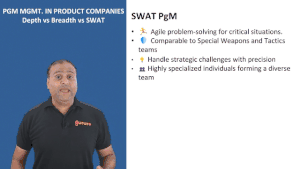
On Demand Video
24-week of step-by-step On-Demand video training & course material to help you dive deep into the fundamentals, tools, frameworks,methodologies of AI Project Management and Technical Program management
Industry Case Studies And Projects
Enrich your TPM portfolio and understanding by diving into real-world technical projects and case studies. Grasp the nitty-gritty of technical program management through hands-on experiences.
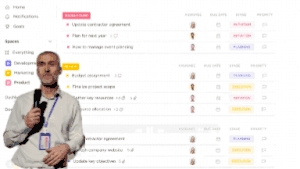
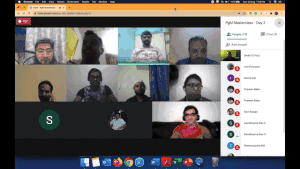
Weekly Live Sessions With Mentors
Participate in our weekly live mentorship sessions. These sessions are geared towards offering profound insights into effective Technical Program Management. Learn, interact, and solve real-world TPM challenges in our live interactive forums.
Career assistance
Dive deep into a comprehensive suite of support tools tailored for PM professionals. From mock interview sessions to individualized career mentoring, we’re here to elevate your professional presence. Let’s fine-tune your resume and LinkedIn profiles to reflect your competence and aspirations in the best light.
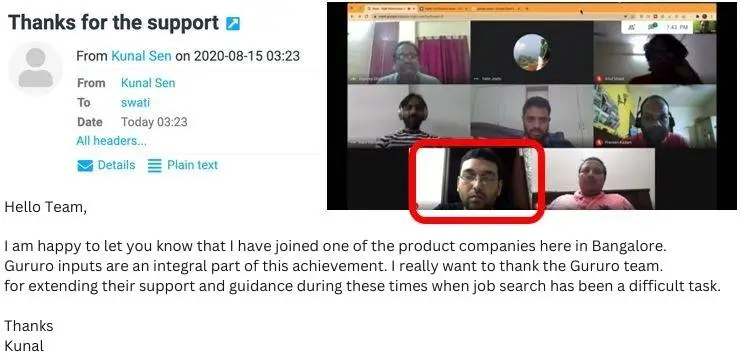

Lifetime Access To Community
Unlock unlimited opportunities with lifetime access to our exclusive community of PM professionals. This vibrant ecosystem fosters collaboration, knowledge sharing, and professional growth. Whether you’re seeking new opportunities, collaboration, or simply to stay updated with industry trends, our community is your endless resource. Build meaningful relations, both professional and personal, and thrive in a community that grows with you.
Gururo Career Support Program
Dedicated career support program designed exclusively for our learners. We aim to empower our learners with everything they need to succeed in their careers.
PM Interview Mastery
Explore 500+ video interview questions & explanation with case studies
Mock Interview Preparation
Mock interviews conducted by technical experts who will offer tips and feedback
Leadership Profile Building
Get assistance in optimizing a world-class CV & Linkedin Profile
Career Mentoring Sessions
Attend one-on-one sessions with career mentors to eradicate blockers
Explore Our Project Management Certificate Programs
LEVEL 1
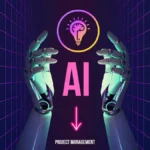
- 4 months
- Single Certificate
INR 24,999
- Foundational to advanced AI project management concept
- Project Management
- PMP
- People Management
- Artificial Intelligence
- Comprehensive interview preparation for Project Management roles.
- For people looking to excel in Project Management careers and ride on the AI revolution.
Get PG Certificate
- PG Certificate in AI Project Management
LEVEL 2
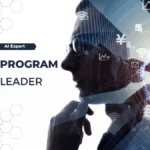
- 5 months
- Dual Certificate
INR 34,999
- Everything in Level 1
- Deep dive into program management strategies and execution
- Program Management
- PGMP
- Delivery Management
- Product And Technology Roadmap Planning
- Thorough Preparation program for Program and Delivery Management Interviews
- For people looking for Program manager positions in product based companies.
Get dual certificates
- PG Certificate in AI Project Management
- PG Certificate in Program Management
LEVEL 3

- 6 months
- Dual Certificate
INR 49,999
- Everything in Level 1 & 2
- Advanced technical program management with a focus on tech industry challenges
- System Analysis and Design
- Technical Program Management
- Technical Problems and solutions
- Extensive Interview Preparation for Technical Program Management Positions
- For people looking to join top tech companies like MAANG and command the top most salary.
Get dual certificates
- PG Certificate in AI Project Management
- PG Certificate in Technical Program Management

